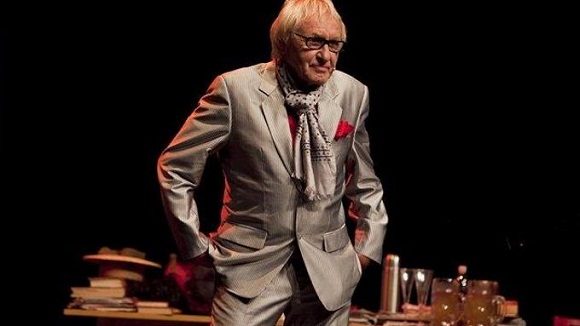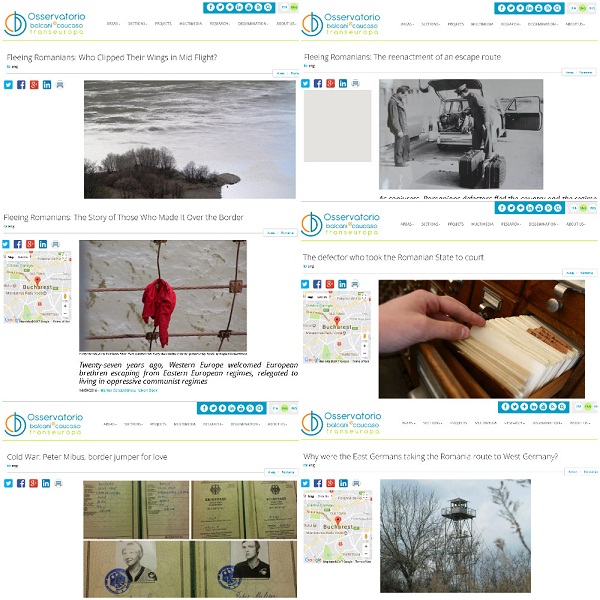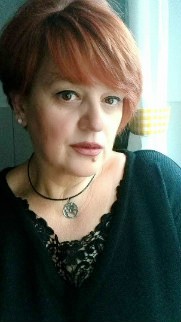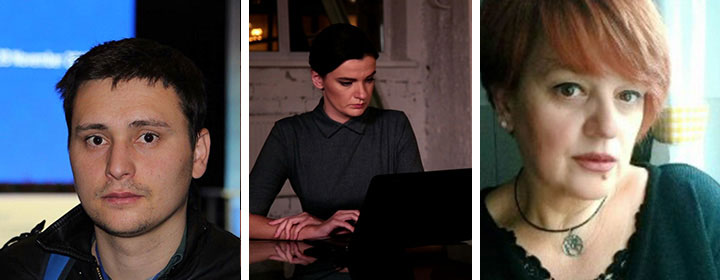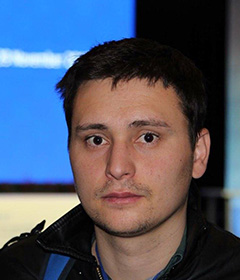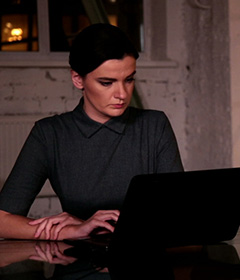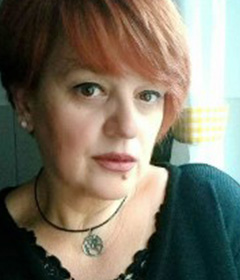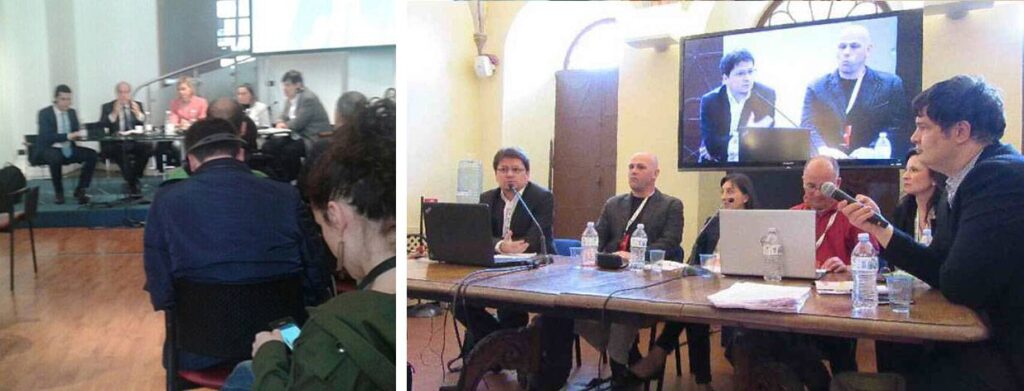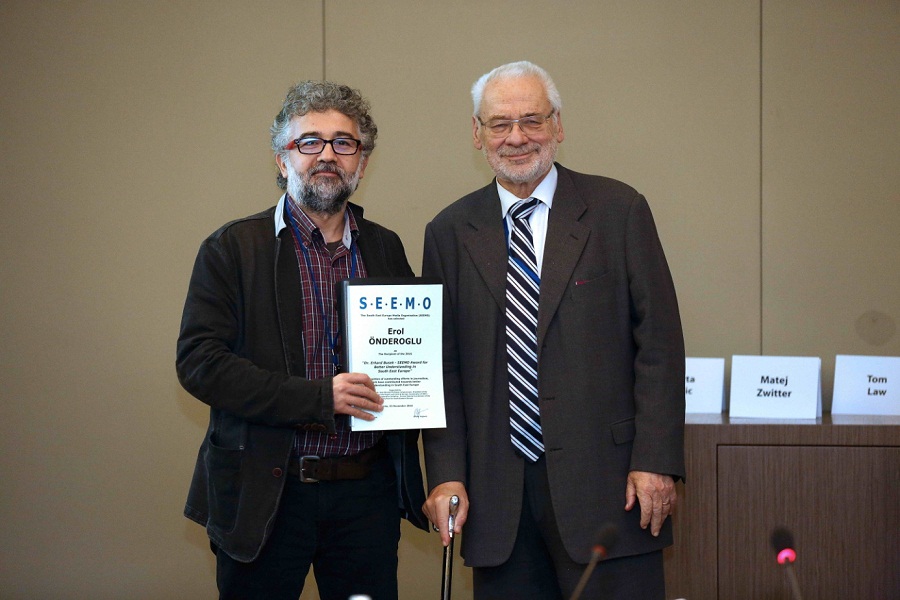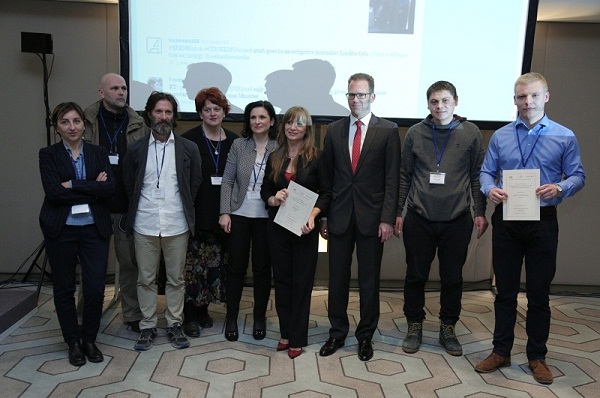The Vienna-based South East Europe Media Organisation (SEEMO), a network of journalists, editors-in-chief and media experts from the region, has announced that Turkish journalist Erol Onderoglu is this year’s winner of the 2016 Dr. Erhard Busek – SEEMO Award for Better Understanding in SEE.
An international jury chose Onderoglu as winner based on his exceptional contributions in the sphere of investigative journalism, critical reporting and better understanding in Turkey and throughout the South East Europe region.
For more than 15 years, Erol Onderoglu has written for Bianet news portal and Reporters without Borders (RWB) on topics related to freedom of expression and press freedom. In 2015, he was elected IFEX Council member. On 20 June 2016, he was arrested with Sebnem Korur Fincanci, head of Human Rights Foundation of Turkey, and Ahmet Nesin, journalist and writer. The three were charged with “terrorist propaganda” for taking part in a solidarity campaign in support of the proKurdish Turkish daily, Özgür Gündem (Free Agenda), in which journalists and activists guest-edit the newspaper on a daily basis to protest its persistent harassment by judicial authorities. He was released on 30 June 2016, but that charges against him remain. Currently he is a Rapporteur for IPS Communication Foundation within the Bianet project (bianet.org) where he publishes quarterly Media Monitoring Reports on press freedom breaches in Turkey and as RWB’s Turkey Representative.
The award, which carries a cash prize of €3,000, is scheduled to be presented on 23 November 2016 in Belgrade, Serbia by Dr. Erhard Busek, president of the Institute for the Danube Region and CentralEurope (IDM). Onderoglu will receive the award during the annual Commission on Media policy meeting, consisting of regular members and colleagues that meet each year following the South East Europe Media Forum (SEEMF).
The previous winners of the Dr. Erhard Busek – SEEMO Award include:
– 2015: the awar was presented to Radomir Licina, co-founder of the Serbian daily Danas, and to the Belgrade NGO International Academy.
– 2014: – Zeljka Lekic-Subasic, head of the Eurovision News Exchange for South East Europe (ERNO). In addition, Nenad Sebek, spokesman for the Regional Cooperation Council (RCC) has been honoured with a special Dr. Erhard Busek – SEEMO Diploma for Better Understanding in South East Europe.
– 2012: Jeta Xharra (Kosovo), director of the Balkan Investigative Reporting Network (BIRN) as well as a presenter and the editor-in-chief of “Life in Kosovo”, Pristina
– 2011: Drago Hedl, (Croatia) journalist, Zagreb-based daily Jutarnji List.
– 2010: Omer Karabeg (Bosnia and Herzegovina), journalist, South Slavic and Albanian Language Service program of Radio Free Europe (RFE/RL), founder and editor of the radio program Most (Bridge), Prague, Czech Republic.
– 2009: Boris Bergant (Slovenia), co-founder of the Alpe Adria broadcasting project, former deputy-president of the European Broadcasting Union (EBU) and former deputy director of Radio Television Slovenia.
– 2008: Brankica Stankovic (Serbia), author of the TV program Insajder, produced by B92 Television, Belgrade, Serbia.
– 2007: Milena Dimitrova (Bulgaria), columnist, Sofia-based daily Trud, Bulgaria.
– 2006: Danko Plevnik (Croatia), columnist, Split-based daily Slobodna Dalmacija
– 2005: Brankica Petkovic (Slovenia), head of the Center for Media Policy, Peace Institute, Ljubljana, Slovenia.
– 2003: Kemal Kurspahic (Bosnia and Herzegovina), former editor-in-chief of the Sarajevo-based daily Oslobodjenje.
– 2002: Denis Latin (Croatia) author of the TV program Latinica, Croatian Radio Television (HRT)
CALL FOR THE BUSEK SEEMO AWARD 2016
Vienna, 21 April 2016
The South East Europe Media Organisation (SEEMO), calls for nominations for the 2016 Dr Erhard Busek-SEEMO Award for Better Understanding in South, Eastern and Central Europe. Eligible to be nominated are journalists, editors, media executives, media experts, writers or journalism trainers in South, East and Central Europe, who have contributed to promoting better understanding in the region and have worked towards ending minority-related problems, ethnic divisions, racism, xenophobia, gender discrimination, homophobia, etc. The winner will be awarded EUR 3,000.
The award is sponsored by Dr. Erhard Busek, former Vice-Chancellor of Austria, Jean Monnet Professor ad personam, President of the Institute for the Danube Region and Central Europe, Coordinator of the Southeast European Cooperative Initiative (SECI) and Former Special Coordinator of the Stability Pact for South Eastern Europe.
The deadline for applications is 31 July 2016 noon Central European Time. All application materials must be received by email and registered post at the SEEMO office by the deadline.
Should you wish to nominate a candidate for the 2016 Dr. Erhard BusekSEEMO Award for Better Understanding in South, Eastern and Central Europe, please send the following materials :
1. Letter of nomination with basic details about the candidate and the reasons why you would like to nominate them, in English by email and registered post; 2. Curriculum Vitae of the candidate, in English, by email and registered post;
3. Additional materials: please include a list of the candidate’s merits; information about the media outlet(s) that have published and/or broadcast the candidate’s work; relevant material, including copies of articles, TV, video or radio material on a USB-stick.
Video, audio and print material in local languages should be accompanied by a short synopsis in English. If materials are available online, please send a document that lists the relevant links as supporting material. Additional materials MUST be sent as hard copies by registered post only, not by email.
Unfortunately, additional materials cannot be returned. Please make sure to send copies rather than original material.
4. Your contact information: name; address; cell phone, phone and fax number; email address, by email and registered post;
5. Candidate’s contact information: name, address, phone number and email address,by email and registered post; 6. If you would like to nominate a media outlet, an organisation or an institution, please include details about the person who would accept the award on its behalf, by email and registered post;
7. If your nomination is supported by an organisation or a media outlet, please send us the name, email and phone of a contact person from the institution supporting your nomination and a short supporting letter, by email and registered post;
8. If your nomination is supported by an individual or individuals, please send us their details, contact information (email, phone) and a short supporting letter, by email and registered post.
Materials listed in points 1, 2 and 4-8 should be sent by both email to award@seemo.org, and by registered post to the SEEMO office in Vienna, Austria. Documents and materials under point 3 should be sent ONLY by registered post to the SEEMO office in Vienna, Austria:
Ms. Anna Schmidt – for BUSEK AWARD South East Europe Media Organisation (SEEMO) (IPI office) Spiegelgasse 2 / 29 1010 Vienna Austria
The candidates must come from, work in or cover the following geographic area (SEEMO region): Albania, Armenia, Azerbaijan, Austria, Belarus, Bosnia-Herzegovina, Bulgaria, Croatia, Cyprus, Czech Republic, Estonia, Georgia, Greece, Hungary, Italy, Kazakhstan, Kosovo, Kyrgyzstan, Latvia, Lithuania, Macedonia (Republic of Macedonia / FYROM), Moldova, Montenegro, Poland, Romania, Russia, Serbia, Slovakia, Slovenia, Tajikistan, Turkmenistan, Turkey, Ukraine, Uzbekistan.
The winner will be chosen by an international jury composed of distinguished journalists and media experts. Members of the jury cannot be nominated for the award.
An official press release in November 2016 will announce the winner.
The award will be presented on 23 November 2016 in Belgrade, Serbia, by Dr. Erhard Busek during the annual meeting of the Commission on Media Policy. The winner will be invited to the presentation. Travel expenses of the winner will be covered.
Previous winners of the Dr. Erhard Busek-SEEMO Award for Better Understanding in South East Europe are:
Radomir Licina (Serbia) founder and senior editor daily Danas;
Željka Lekić-Subašić (Bosnia and Herzegovina), head of ERNO (Eurovision News Exchange for Southeast Europe) Coordination Office;
Nenad Šebek (Greece) executive director of the Center for Democracy and Reconciliation in Southeast Europe (CDRSEE) in Thessaloniki for 12 years, developing and working on a wide variety of programmes, from the joint history project to the regional television talk show “Vicinities”;
International Academy (Serbia) for the project Media and Inclusion of Persons with Disabilities;
Jeta Xharra (Kosovo) director of the Balkan Investigative Reporting Network (BIRN), as well as a presenter on, and the editor-in-chief of, “Life in Kosovo”;
Drago Hedl, (Croatia) journalist, Zagreb-based daily Jutarnji List;
Omer Karabeg (Bosnia and Herzegovina), journalist, South Slavic and Albanian Language Service program of Radio Free Europe (RFE/RL), founder and editor of the radio program Most (Bridge), Prague, Czech Republic;
Boris Bergant (Slovenia), co-founder of the Alpe Adria broadcasting project, former deputy-president of the European Broadcasting Union (EBU) and former deputy director of Radio Television Slovenia;
Brankica Stankovic (Serbia), author of the TV program ‘Insajder’, produced by B92 Television, Belgrade, Serbia;
Milena Dimitrova (Bulgaria), columnist, Sofia-based daily Trud, Bulgaria;
Danko Plevnik (Croatia), columnist, Split-based daily Slobodna Dalmacija;
Brankica Petkovic (Slovenia), Head of the Center for Media Policy, Peace Institute, Ljubljana, Slovenia;
Kemal Kurspahic (Bosnia and Herzegovina / USA), editor-in-chief of the Sarajevo-based daily Oslobodjenje during the war in Bosnia and Herzegovina and author of Prime Time Crime;
Denis Latin (Croatia) author of the TV program ‘Latinica’, Croatian Radio Television (HRT).
For questions and more information please write to award@seemo.org

